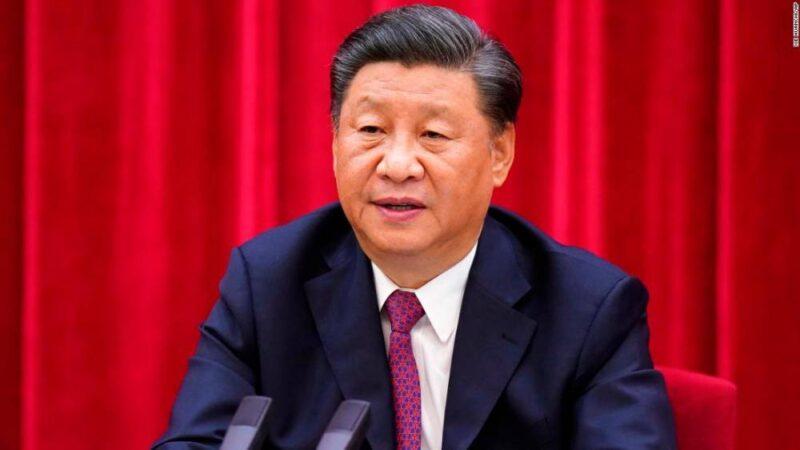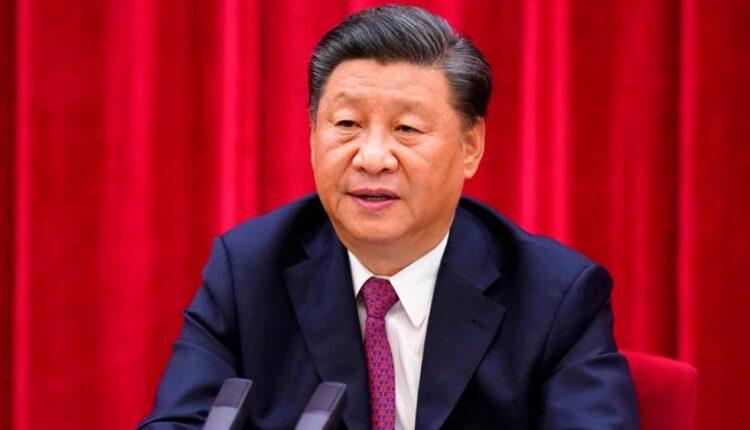Hong Kong (CNN Business)President Xi Jinping has sent a message to China’s private businesses: You can make money, but only if you follow my rules.
The ruling Chinese Communist Party this month published an unusually frank set of guidelines that call on its members to “educate private businesspeople to weaponize their minds with [Xi’s] socialism ideology.” The private sector needs “politically sensible people,” the directive said, who will “firmly listen to the party and follow the party.”
The message comes as the world’s second-largest economy continues its fragile recovery from the coronavirus pandemic and tussles with the United States over trade and the future of technology. Bringing China’s independent-minded private businesses to heel could help speed that recovery, while extending the control of the most powerful leader the country has seen in decades at a time of mounting challenges at home and abroad. The message was remarkable for its candor and zeal. In the past, Beijing had taken a more tactful approach when it wants to exercise control over companies beyond the state sector — like in 2018 when Xi offered the private sector tax breaks, financial assistance, and a personal vow of support to quell any fears that it was falling out of political favor. Read MoreAnd while it’s not yet clear what practical effect the latest directive will have on private enterprise in China, one of Xi’s catchphrases has been “the party exercises overall leadership over all endeavors across the country.” The directive indicates that the Chinese leader wants to take more overt measures to spell out the importance of the Communist Party’s philosophies. That could mean requiring private companies to take public stances on major political or foreign affairs, such as any territorial disputes that China is involved in.

One of Chinese President Xi Jinping’s catchphrases has been “the party exercises overall leadership over all endeavors across the country.” A new directive indicates that the Chinese leader wants to take more overt measures to spell out the importance of the Communist Party’s philosophies.
The ‘United Front’
The private sector is a vital part of China’s economy. More than 30 million private businesses contribute over 60% of the country’s GDP. The taxes they pay account for more than half of government revenue, and they employ more than 80% of China’s workers.The document explicitly called for the private sector to become part of the “United Front,” a coalition of individuals and organizations tasked with carrying out the party’s agenda and creating alliances among those with similar philosophies. The network’s origins can be traced back nearly a century, and it was once credited by Chairman Mao Zedong as a “magic weapon” that helped the Communist Party triumph over its enemies. China has not publicly released documents emphasizing the importance of aligning the private sector with the United Front since the late 1970s, when the country embarked on a decades-long path toward economic reform meant to stabilize the country after the Cultural Revolution.But in some ways, this kind of messaging isn’t entirely surprising, according to Steve Tsang, director of SOAS China Institute in London. While China’s economy has managed to avert recession this year, the coronavirus pandemic has still wiped out much of its growth.Chinese politicians have in the past expressed concern that prolonged economic instability could lead to social unrest. And given the financial turmoil the country’s private sector has experienced in recent years, the government might be hesitant to afford those companies a lot of free reign at a precarious time.China is also faces rising hostility from Western powers, noted Willy Lam, an adjunct professor at the Centre for China Studies, Chinese University of Hong Kong. The feud between Washington and Beijing has hurt the fortunes of many Chinese businesses, from TikTok owner ByteDance to tech firm Huawei. “Xi wants the whole nation to act as one because the country is going though unprecedented challenges,” Lam said. “Under the growing sense of crisis, Xi wants everybody in China to unite under the leadership of the party and speak the same voice.”
Private sector on the defense
As extraordinary as last week’s directive was, there have been signs for years that private enterprise in China is on the defense.Following a stock market meltdown in 2015 and 2016 — which experts at the time attributed to slowing economic growth and risky trading practices encouraged by cheerleaders in a bullish state media — an unprecedented amount of money began leaving China through private business. Xi’s government blamed the turmoil partly on high-flying financial tycoons, and since then Beijing has tightened the rules that govern the sector. Regulators have curbed excessive corporate borrowing and made it harder for money to leave China. As that campaign was taking off around 2017, Xi was also openly talking about the importance of the Communist Party as the heart of “everything in China,” Tsang pointed out.”The economy is therefore not an exception,” he added. “This generally implies that Xi’s economic policy focuses on advancing the state-owned sector at the expense of the private sector.”Even more concerning, a handful of major companies had begun taking on a hefty amount of financial risk, raising fears of instability.For example, in 2018 Chinese regulators seized control of Anbang Insurance, a major conglomerate that made big overseas deals and which once owned the Waldorf Astoria and Strategic Hotels & Resorts. Founder and chairman Wu Xiaohui was eventually sentenced to 18 years in prison for fraudulent fundraising and embezzlement, and the firm announced last week that it will apply for liquidation. Earlier this year, the massive conglomerate HNA Group also fell under government management. The company had spent $40 billion on investments in Hilton (HLT), Deutsche Bank (DB) and other overseas assets in recent years, eventually finding itself so deep in debt that its finances became overstretched. Even some of China’s most successful private companies have been subject to government action. Last year, for example, officials in the city of Hangzhou were sent into some of the country’s biggest private companies, including Alibaba (BABA)and Geely (GELYF), as “government affairs representatives.”That move may have been a message from the government to private companies: “Move closer [to us] and listen,” Ronald Wan, chief executive for Partners Capital International in Hong Kong, told CNN Business at the time.The private sector is also struggling financially.Revenue growth at the top 500 private companies in China as measured by sales slowed by about 10% on average last year, according to a survey released earlier this month by the All-China Federation of Industry and Commerce, a chamber of commerce led by the Communist Party. The organization describes itself as a “bridge” linking the party and the government with private business groups.Profit growth at those companies fell by an average of nearly 6%, while the size of their workforce slumped by roughly 1% compared to 2018.Those problems aren’t explained simply by government intervention. China’s economic slowdown predated the pandemic, and was exacerbated by fallout from the unprecedented closures that were implemented to stem the spread of the virus. The US-China trade war also dealt a blow to businesses.
A secondary role
It’s not that Beijing no longer cares about having a robust private sector. After all, such businesses are critical to the health of the economy.Chinese Premier Li Keqiang admitted in July that the combination of problems has left private businesses in the “most difficult times.” He urged the government and any state-owned businesses to help in the recovery by repaying any loans owed to private companies.”In reality, Xi is not anti-private sector per se,” said Tsang, of the SOAS China Institute. “While he clearly puts the state sector ahead, he is willing to support private enterprises provided the enterprises concerned adhere closely to the party’s leadership.””But for private enterprises that do not adhere closely to the party’s direction, they can expect to face pressure from the authorities,” he added.There are some consequences for such a strategy, though. Western authorities have been historically mistrustful of how closely some private companies are tied to Beijing — a concern that is only growing as tensions between the United States and China escalate. The short form video app TikTok, for example, has ignited a political firestorm in the United States because US authorities are wary about its ties to Beijing.But Lam, the professor, said those concerns might not matter much to Xi.
The Chinese leader has already made it clear that he wants his country to shed its reliance on the West for the critical technologies of the future, particularly as geopolitical tensions rise. For Xi and the Communist Party, the state sector is key to making that happen.”Xi is a super hawk,” Lam said. “He doesn’t care much about the West, because his priority is about tightening the control of China and maintaining the party’s domestic rule.”
Source: edition.cnn.com

